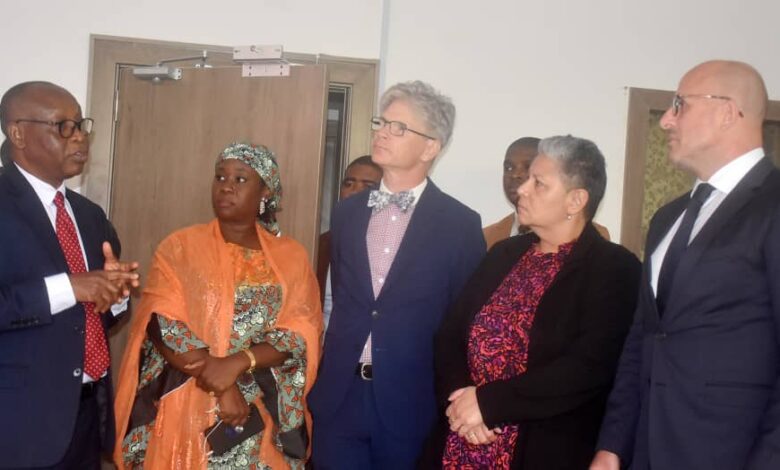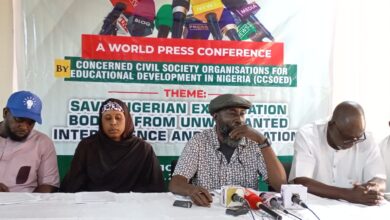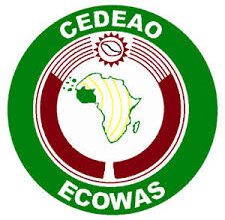
The Nigeria Extractive Industries Transparency Initiative (NEITI) has sought for the technical support of Belgium, Australia and Canada to deepen the extractive industry reforms in Nigeria.
Executive Secretary of NEITI, Dr. Orji Ogbonnaya Orji made the call for help on Wednesday when he received the Ambassador of Belgium, Mr. Pieter Leenknegt and High Commissioners of Australia and Canada, Ms Leilani Bin-Juda and Jammie Christoff, who were on a familiarization visit to NEITI House in Abuja.
Dr. Orji noted that the reforms would deal with the current challenges of corruption, oil theft, illegal mining, stealing of Nigeria’s precious minerals, pipeline vandalization, damage to the environment, the eco system and other associated governance challenges.
He explained that the “NEITI’s legitimate interests is to save our country from continuing loss of revenues and investment opportunities in the sector.
“NEITI’ industry reports findings and recommendations over the years support local and global partnerships and collaboration to address these challenges and your visit is a great opportunity”, he said.
The NEITI boss said, their visit was a huge encouragement to the agency and an endorsement of its strong international affiliation and partnership with 57 other resource-rich countries under the global extractive industries transparency initiative (EITI).
He affirmed that in 2003, Nigeria took a bold step by voluntarily signing up to the global EITI as a founding implementing country, adding that the decision was centered in the belief that transparency in the extractive sector would pave the way for sustainable development and poverty reduction in resource – rich countries.
He said, Nigeria further demonstrated its commitment by being the first country to support implementation with a law in 2007, noting that apart from institutionalization of the EITI process in Nigeria, the law empowers stakeholders-government, companies and the civil society with the shared responsibility of ensuring transparency and accountability in the management of government’s investments in all extractive industry operations in Nigeria.
The ES told the visitors that the global transition from fossil fuels to renewable energy sources poses significant risks to countries that depend heavily on hydrocarbon-based natural resource-revenues for survival.
He said, “Our country, Nigeria is heavily dependent on oil revenues for survival. Your visit is an opportunity to highlight the importance of partnership and cooperation between under developed, developing and developed countries which are all found within the EITI community to share knowledge, skills and technical support with our organization to help our government and citizens with timely policy decisions and strategies to deal with these complex challenges and unavoidable unfolding developments in the extractive sector.
“’At current dependency levels, Nigeria and most developing countries already face significant threats to their economy from the prospect of a permanent decline in global demand for crude oil. Given the fiscal problems Nigeria has experienced from short-term disruptions in crude oil and gas output, the much longer-term and permanent decline in demand would have far-reaching impact on the country’s economy”, he said.
Dr, Orji said, while the transition from carbon-based fuel would have significant long-term impact on Nigeria’s revenue and exports, the transition would also have other impacts on the economy.
He informed that a direct consequence of the transition would be the loss of fossil fuel as a source of energy, adding that in 2021, crude oil and gas accounted for 46% of energy use and 78% of electricity generation in Nigeria.
“The transition would therefore, require significant financial investment for the country to generate renewable energy to replace energy previously generated from carbon fuels. I invite you to consider looking towards these areas as you strive to bridge the current existing investment gaps between Nigeria and your countries”, he said.






